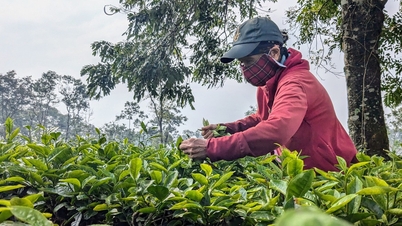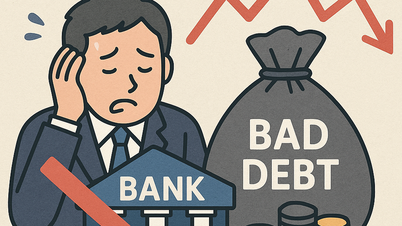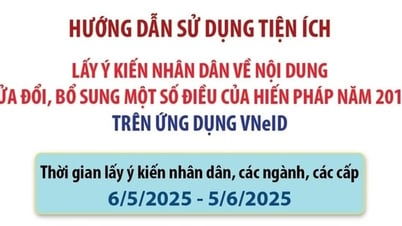World coffee prices recovered, Robusta coffee prices extended their recovery streak as global supply showed no signs of improvement in the short term. Meanwhile, the positive increase in the USDX index has made funds and speculators not rush to participate in transactions, continuing to stay outside the markets to probe more macro-financial news, about the upcoming monetary policy trend of the US Federal Reserve (Fed) and the Jackson Hole Conference last weekend.
At the end of the trading session on August 25 on the international futures exchange, the price of robusta coffee on the ICE Futures Europe London exchange for November 2023 delivery increased sharply by 31 USD, trading at 2,437 USD/ton. The January 2024 delivery increased by 24 USD, trading at 2,349 USD/ton. Trading volume was low.
Arabica coffee prices on the ICE Futures US New York exchange for December 2023 delivery fell 1.15 cents, trading at 153.1 cents/lb. Meanwhile, the March 2024 delivery fell 1 cent, trading at 154.3 cents/lb. Trading volume was low.
 |
| Domestic coffee prices increased by VND500-600/kg in key purchasing localities in the closing trading session this week (August 26). (Source: dallas.culturemap) |
Robusta coffee prices have increased continuously as ICE inventories continue to fall sharply without any additions from major producers. The trend of direct sales without going through the floor will reduce many indirect costs for all parties, in the context of the current global robusta coffee supply shortage.
Arabica coffee prices have been adjusted down due to abundant supply from Brazil which is currently harvesting its new crop in its “ biennial” cycle with an expected output of nearly 50 million bags and new crop sales are still strong thanks to the weakening of the local currency.
Brazil’s coffee exports are getting a boost as the 2023/24 arabica harvest has reached 80% of the area. Brazil’s arabica bean exports reached 2.19 million tonnes in July, up 6.5% from a year earlier, exporters association Cecafe said.
Meanwhile, information providers are optimistic about the country’s 2023/24 coffee production. Risk and analytics provider Hedge Point Global Markets said Brazilian farmers are expected to produce 65.8 million 60-kg bags of coffee in 2023, up from the previous forecast of 63.8 million bags.
Domestic coffee prices increased by 500 - 600 VND/kg in key purchasing localities in the closing trading session this week (August 26).
Unit: VND/kg. (Source: Giacaphe.com) |
According to experts, Vietnam's coffee exports are forecast to slow down in the third quarter of 2023 due to a lack of abundant supply. However, Vietnam's coffee exports will benefit in price as global consumer tastes tend to shift to robusta coffee.
According to the latest statistics from the Vietnam Commodity Exchange (MXV), in the trading week from August 7 to 11, the price of Arabica coffee recorded a decrease of 2.20% with 4 out of 5 sessions closing in red.
In contrast, robusta coffee improved with an increase of 2.30% compared to the reference. The contrast in supply between the two commodities was the main factor causing coffee prices to move in opposite directions last week.
With the current situation of Brazilian Arabica supply gradually becoming available, MXV experts believe that Arabica coffee prices this week are likely to continue to weaken.
In contrast, for robusta coffee, coffee exports in Vietnam still showed a decline. In July, Vietnam shipped 108,872 tons of coffee abroad, down 22.6% compared to the previous month. At the same time, Vietnam's cumulative coffee exports in the first 7 months of this year decreased by 3.4% compared to the same period last year, at 1,116,804 tons.
Low coffee exports from the world’s largest robusta supplier continue to raise concerns about a supply shortage in the market, even as Brazil ramps up sales of its new crop. Robusta exports will account for about 75.5% of total coffee exports in 2022.
Source







![[Photo] Prime Minister Pham Minh Chinh and Prime Minister of the Kingdom of Thailand Paetongtarn Shinawatra attend the Vietnam-Thailand Business Forum 2025](https://vphoto.vietnam.vn/thumb/1200x675/vietnam/resource/IMAGE/2025/5/16/1cdfce54d25c48a68ae6fb9204f2171a)




























![[Photo] President Luong Cuong receives Prime Minister of the Kingdom of Thailand Paetongtarn Shinawatra](https://vphoto.vietnam.vn/thumb/1200x675/vietnam/resource/IMAGE/2025/5/16/52c73b27198a4e12bd6a903d1c218846)


























































Comment (0)